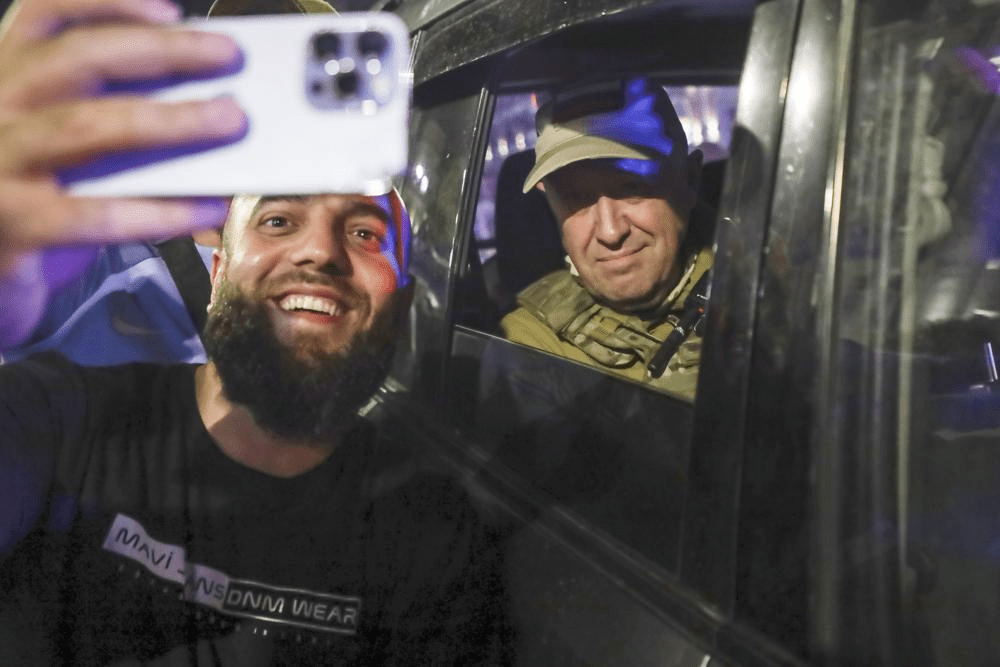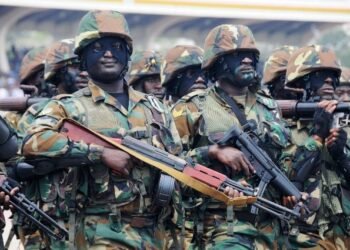U.S Secretary of State, Antony Blinken has disclosed that the revolt by the Wagner mercenary group and its leader, Yevgeny Prigozhin over the weekend was “a direct challenge to Putin’s authority.”
According to Blinken, the challenge to Putin came from within. “I think we’ve seen more cracks emerge in the Russian façade,” he said, adding that “We have all sorts of new questions that Putin is going to have to address in the weeks and months ahead.”
Also, Blinken stated that Putin’s decision to invade Ukraine has created chaos in his own country.
“If you put this in context 16 months ago, Putin was on the doorstep of Kyiv in Ukraine, looking to take the city in a matter of days, erase the country from the map. Now, he’s had to defend Moscow, Russia’s capital, against a mercenary of his own making.”
Antony Blinken
“So, I think this is clear – we see cracks emerging. Where they go, if anywhere, when they get there, very hard to say. I don’t want to speculate on it,” he added.
Moreover, Sergei Markov, Russian political scientist and former adviser to President Vladimir Putin, opined that the events were “an indicator of some crisis in the Russian government”, who are not fully in control of parts of the Russian military.
“So Vladimir Putin will have to change his policy and, under the demand of Russian society, and part of the Russian army, to conduct [a tougher] policy for the winning war in Ukraine,” Markov said.
Markov added that the Wagner rebellion created a “terrible situation” for Putin and for Russia as a whole, and could’ve caused a “big civil war”.
Wagner Troops Halt Their March On Moscow

Wagner Boss, Yevgeny Prigozhin ordered his troops to halt their march on Moscow to avoid “shedding Russian blood,” ending one of the biggest challenges to President Vladimir Putin’s decades-long rule.
Prigozhin said while his men were just 200km (120 miles) from the Russian capital, he decided on Saturday, June 24, 2023, to turn them back to prevent killings.
They were halted only by a deal for Prigozhin to move to neighboring Belarus, which has supported Russia’s invasion of Ukraine. The deal was negotiated by Belarusian President Alexander Lukashenko.
According to Kremlin Spokesman, Dmitry Peskov, charges against the Wagner Chief of mounting an armed rebellion will be dropped and Prigozhin ordered his troops back to their field camps.
The government also said it would not prosecute Wagner fighters who took part, while those who did not join in would be offered contracts by the Defense Ministry.
Though Putin had vowed earlier to punish those behind the armed uprising, Peskov defended the reversal, saying Putin’s “highest goal” was “to avoid bloodshed and internal confrontation with unpredictable results.”
That amnesty stands in contrast to the fines and jail sentences Russian authorities have meted out to thousands of people who have criticized the war.
Prigozhin, who sent out a series of audio and video updates during his mutiny, has gone silent since the Kremlin announced the deal. It is not clear if he is in Belarus yet or whether any of his Wagner troops would follow him.
Video showed people cheering Wagner troops as they departed. Some ran to shake hands with Prigozhin, who was riding in an SUV.

Moscow had braced for the arrival of the Wagner forces by erecting checkpoints with armored vehicles and troops on the city’s southern edge. It was reported that about 3,000 Chechen soldiers were pulled from fighting in Ukraine and rushed there early Saturday.
Russian troops armed with machine guns put up checkpoints on Moscow’s southern outskirts. Crews dug up sections of highways to slow the march.
By Sunday afternoon, the troops had withdrawn from the capital, and people swarmed the streets and flocked to cafes. Traffic returned to normal and roadblocks and checkpoints were removed, but Red Square remained close to visitors.


















